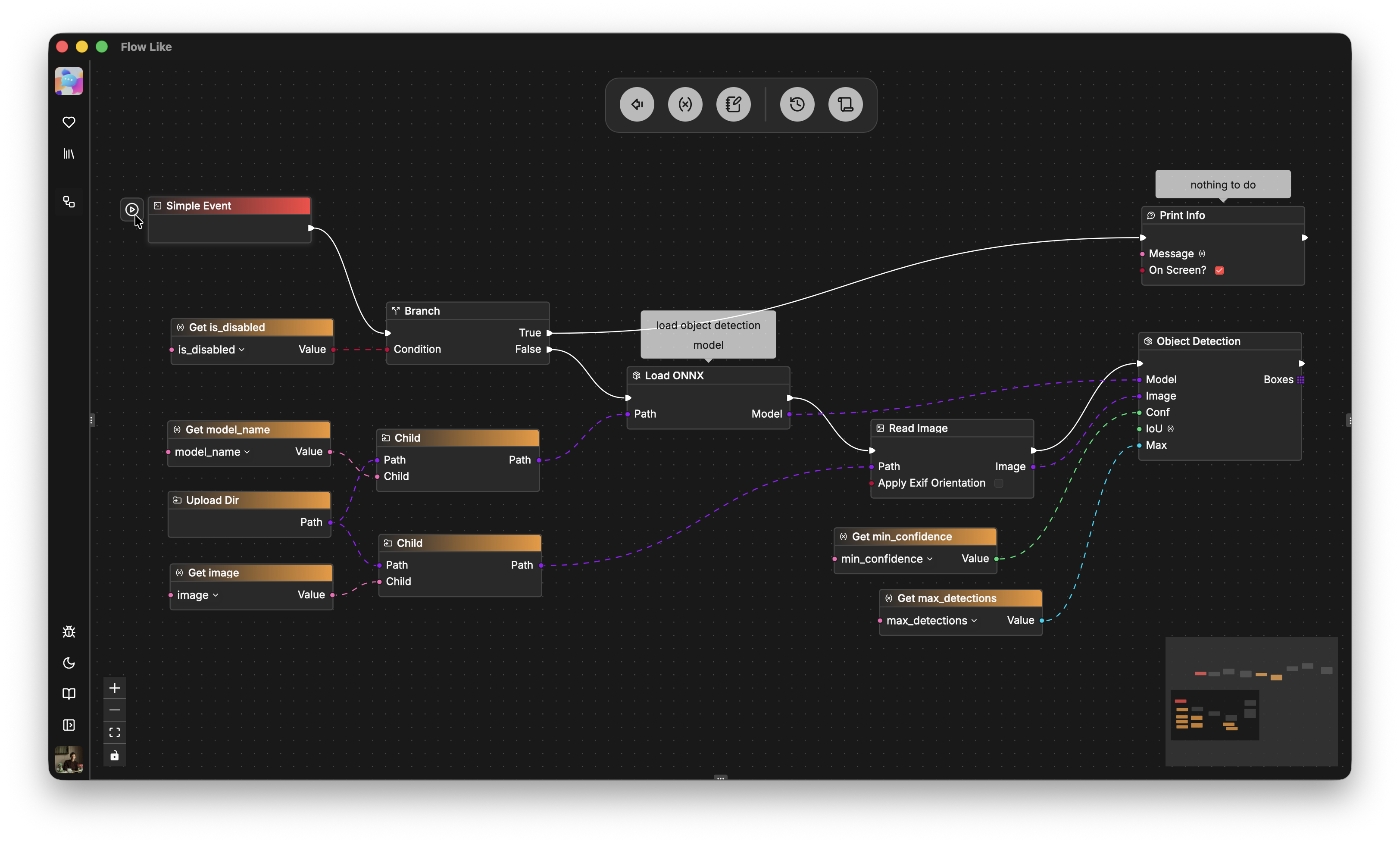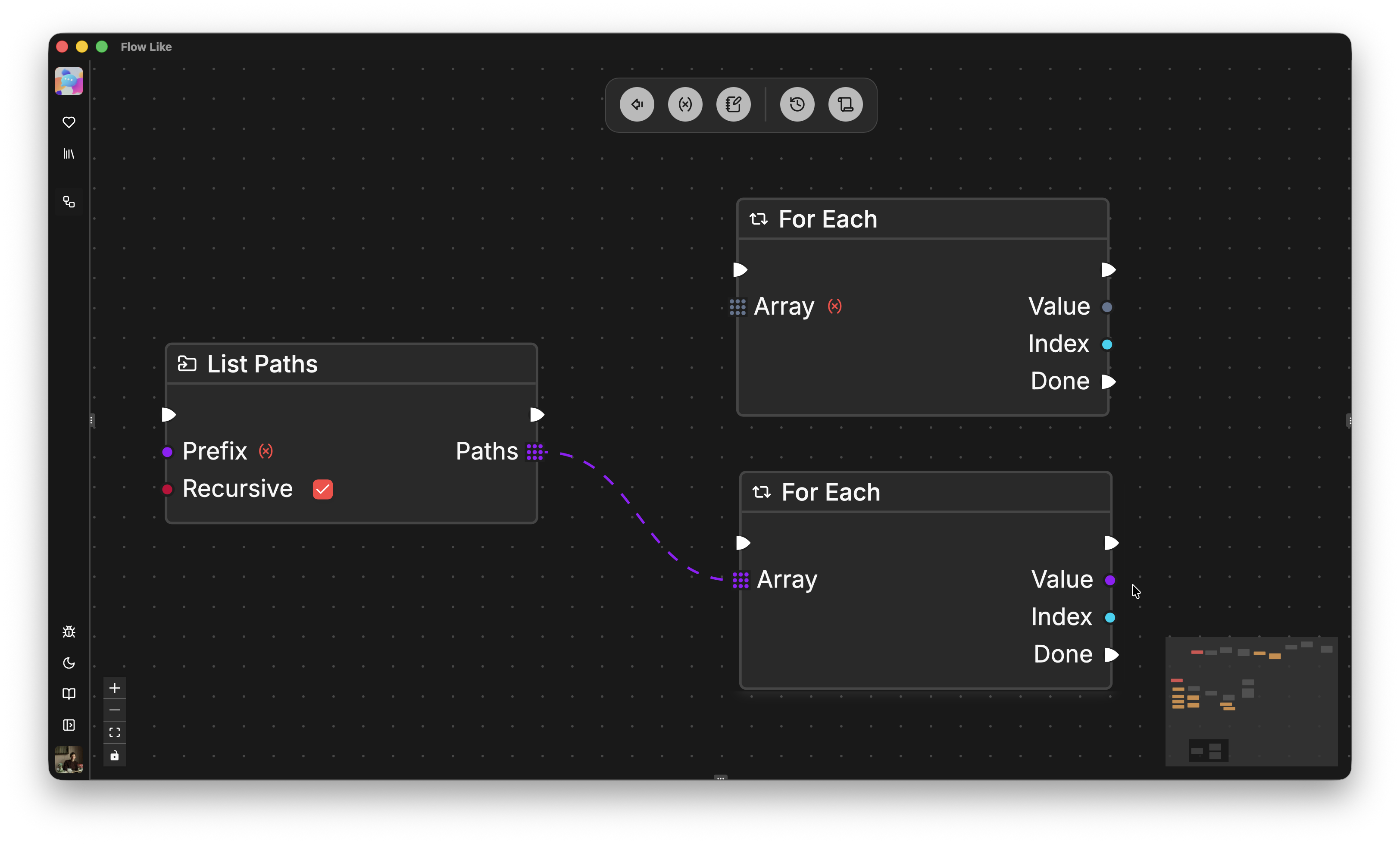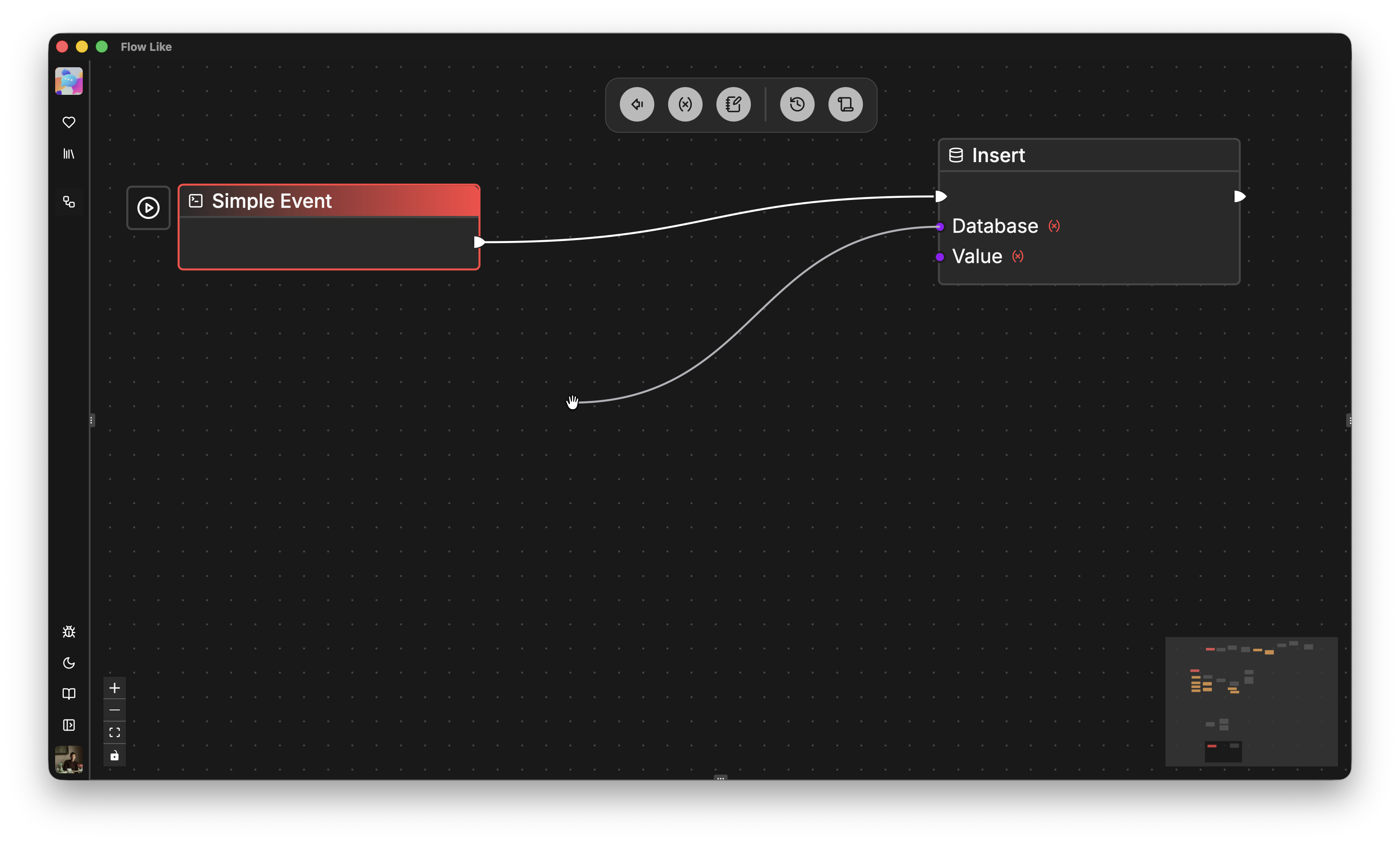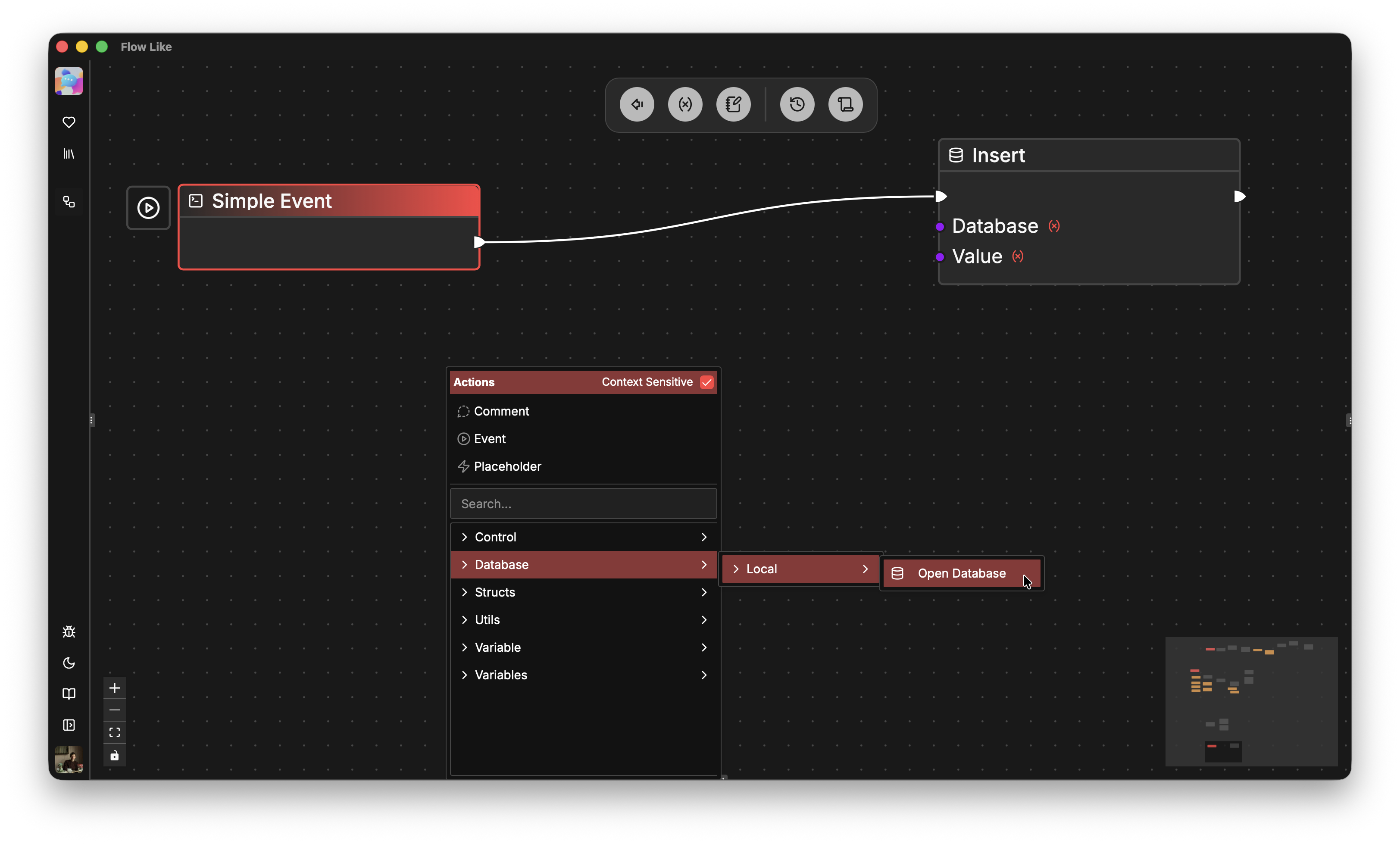Connections
Connection Types
Section titled “Connection Types”There are two types of wires / connections between nodes:
- Execution Wires (white) represent execution flow throughout the graph, typically starting with an event node. Executions can branch at Branch Nodes, repeat in Loop Nodes, or split for parallel execution.
- Data Wires (colored, dashed) represent data transmission between nodes. The color of a data wire indicates the data type (see also Variables and Types).
All pins in Flow-Like Studio enforce types:
- You can only connect execution pins to other execution pins.
- You can only connect data pins to pins of the same type (aka color).
Some nodes additionally enforce a schema on complex types (structs, purple). For example, a Path output is only accepted by nodes that also have a Path input pin.

Some nodes come with generic (unspecified) types when selected from the node catalog. For example, the For Node allows looping over arrays of different types, but once an upstream data pin is connected, its type is fixed (e.g., a For Node for Paths):

Auto-Suggestions Based on Types
Section titled “Auto-Suggestions Based on Types”Thanks to Flow-Like’s strong typing mechanism, we can leverage the fact that only pins of the same type can be connected and suggest matching nodes.
Drag a pin (input or output) onto the open canvas to create a new node that is immediately connected to the current node:

Once you drop the dragged pin, the node catalog dialog opens and suggests only those nodes that can actually be connected to this pin:

Catalog filtering based on types can significantly speed up your flow creation process.